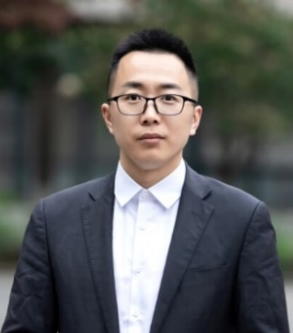 Prof. Shunli Wang
Prof. Shunli Wang
Academic leader of the National Electrical Safety and Quality Testing Center, Smart Energy Storage Institute, China
Biography: Prof. Shunli Wang is a Doctoral Supervisor, Academic Dean, Academic Leader of the National Electrical Safety and Quality Testing Center, Academician of the Russian Academy of Natural Sciences, Provincial Senior Overseas Talent, Provincial level scientific and technological talents, Academic and Technical Leader of China Science and Technology City, and top 2% of top scientists in the world, who is an authoritative expert in renewable energy research. His research interests include modeling, state estimation, and safety management for energy storage systems. 56 projects have been undertaken, including the projects from the National Natural Science Foundation of China and the Provincial Science and Technology Department. 258 research papers have been published (Research Interest Score: 11547; Citations: 3167; h-index: 29). 53 intellectual property rights have been applied, of which 23 authorizations have been approved. 9 books have been published by famous publishers such as Elsevier and IET. 23 honorary titles or awards have been achieved, such as young scholars and leading experts of innovative talent teams. Also, the team has been continuously supported by the "University & Enterprise Innovative Talent Team Support Plan" and unanimously praised by employers and peer experts.
Title: Core State Parameter Monitoring of High-reliability Smart Energy Storage Systems
Abstract: As an important component of the smart grid energy storage system, high-precision state of health estimation of lithium-ion batteries is crucial for ensuring the power quality and supply capacity of the smart grid. To achieve this goal, an improved integrated algorithm based on multiple layer kernel extreme learning machine and genetic particle swarm optimization algorithm is proposed to estimate the SOH of Lithium-ion batteries. Kernel function parameters are used to simulate the update of particle position and speed, and genetic algorithm is introduced to select, cross and mutate particles. The improved particle swarm optimization is used to optimize the extreme value to improve prediction accuracy and model stability. The cycle data of different specifications of LIB units are processed to construct the traditional high-dimensional health feature dataset and the low-dimensional fusion feature dataset, and each version of ML-ELM network is trained and tested separately. The numerical analysis of the prediction results shows that the root mean square error of the comprehensive algorithm for SOH estimation is controlled within 0.66%. The results of the multi-indicator comparison show that the proposed algorithm can track the true value stably and accurately with satisfactory high accuracy and strong robustness, providing guarantees for the efficient and stable operation of the smart grid.
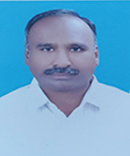 Dr. Prof. P Venkatesh (IEEE Senior Member)
Dr. Prof. P Venkatesh (IEEE Senior Member)
BOYSCAST Fellow
Department of Electrical & Electronics Engineering
Thiagarajar College of Engineering, India
Biography: From 1994 onwards, he works as a teaching faculty in various positions as a lecturer, Assistant professor, Associate professor, Professor and guiding undergraduate and post-graduate Engineering students in Thiagarajar College of Engineering, Madurai, Tamilnadu, India. Received BOYSCAST Fellowship scheme award in 2006 from Department of Science and Technology (DST), India for carrying out Post Doctoral research work at The Pennsylvania State University, University Park, USA.
He is Fellow in Institution of Engineers (India) (IE (India), Senior Member in IEEE (USA) and a life member in Indian Society for Technical Education (ISTE), Execom Member, IEEE PES Madras Chapter.
He has visited countries Malaysia and Singapore. He has produced 12 Ph.D scholars so far. Currently, He has an h index of 22. I have written a book, namely Electrical Power System Analysis, Security and Deregulation and one more book chapter in the title smart grid. He has completed three projects funded by AICTE, DST-FAST Track and UGC. Further information is available at www.tinyurl.com/venkateshtce
Title: Solar Roof top PV panel in Home – A case study
Abstract: This talk presents the installation procedure of 2 KW Grid connected solar roof top PV panel in home. The selection of rating of 2 KW Grid connected solar roof top PV panel is done by the calculation with the consumer's electricity bill. The bimonthly electricity bill is considered. The site survey, PV module arrangements, IV and PV characteristics of solar panel have been made in the case study. The electrical connection of 2 KW grid-connected solar roof top PV panel is depicted with suitable figures. The case study shows a reduction of energy consumption of approximately INR. 1500 from home after installing 2 KW Grid-connected solar roof top PV panel which is reflected in the bimonthly Electricity bill of the consumer. More information is available on YouTube: https://youtu.be/W3SWye6w03E
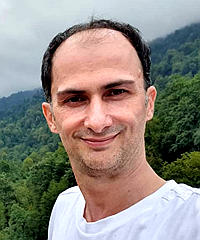 Dr. Oveis Abedinia (IEEE Senior Member)
Dr. Oveis Abedinia (IEEE Senior Member)
Head of Future Sustainable energy Institute, Ardabil, Iran.
Biography: Oveis Abedinia holds a B.S, M.Sc, and PhD (first honor) in Electrical Engineering. He began working as a Post-doc and part-time faculty member at Budapest University of Technology, Budapest, Hungary in 2015, and subsequently started constructing various solar power plants in 2017. He then joined Ardabil Science and Technology Park as Head of International Relations. From 2019 to 2023, he successfully oversaw the construction of over 250 solar power plants, varying in size from small to large scale. In 2019, he joined Nazarbayev University as a research fellow until 2023. In 2024, he stablished an institute in energy field in Iran, and currently is a head of this institute. Dr. Abedinia also serves as an Editor for several international journals. He has published over 120 articles and books in various high-ranking journals and conferences with 3976 citations in google scholar and 32 h-index. His research interests include Optimization, Machine Learning, Power System Operations and Forecasting. He is Editor in different journals such as Complexity and guest editor in Energies. His interest areas are Operation in Power systems, Forecasting, Optimization Methods, Energy Management and Sustainable Energy.
Title: pending
Abstract:
 Prof. Dr. Mohan Lal Kolhe
Prof. Dr. Mohan Lal Kolhe
Faculty of Engineering and Science of the University of Agder, Norway
Biography: Prof. Dr. Mohan Lal Kolhe is a full professor in smart grid and renewable energy at the Faculty of Engineering and Science of the University of Agder (Norway). He is a leading renewable energy technologist with three decades of academic experience at the international level and previously held academic positions at the world's prestigious universities, e.g., University College London (UK / Australia), University of Dundee (UK); University of Jyvaskyla (Finland); Hydrogen Research Institute, QC (Canada); etc. In addition, he was a member of the Government of South Australia’s first Renewable Energy Board (2009-2011) and worked on developing renewable energy policies.
Professor Kolhe is an expert evaluator of many prestigious international research councils (e.g., European Commission: Erasmus+ Higher Education – International Capacity Building, Royal Society London (UK), Engineering and Physical Sciences Research Council (EPSRC UK), Cyprus Research Foundation, etc.). In addition, many international organizations have invited him to deliver keynote addresses, expert lectures, workshops, etc. He has also been a member of many academic promotional committees.
Professor Kolhe has successfully won competitive research funding from the prestigious research councils (e.g., Norwegian Research Council, EU, EPSRC, BBSRC, NRP, etc.) for his work on sustainable energy systems. His research works in energy systems have been recognized within the top 2% of scientists globally by Stanford University’s 2020, 2021 matrices. He is an internationally recognized pioneer in his field, who’s top 10 published works have an average of over 175 citations each.
Title: pending
Abstract:
 Dr. Oveis Abedinia
Dr. Oveis Abedinia
School of Engineering and Digital Sciences, Electrical and Computer Engineering, Nazarbayev University, Republic of Kazakhstan
Biography: Oveis Abedinia received B.S (2005), M.Sc (2009) and PhD (2015-first honor) all in Electrical Engineering. He joins to Budapest University of Technology and Economics in 2015 as Post-doc researcher and adjunct faculty member. In 2017 he started to construct different solar power plants in middle-east countries as project manager and then joins to Ardabil Techno-Park as Head of International Relations. Dr. Abedinia started his cooperation with Nazarbayev University from 2019 as visiting professor. He is Editor in different journals such as Complexity and guest editor in Energies. He has authored and co-authored more than 110 peer-reviewed publications (journal and conference papers), in addition to 4 book and book-chapters. He is Editor in Energy, Complexity, Energies and different high rank journals. Also, he is an active reviewer of several international journals (more than 32 high rank journals) as -IEEE Transactions on Smart Grid-, -IEEE Transactions on Power System-, -Energy-, -Applied Energy-, etc. His interest areas are Operation in Power system, Forecasting, Optimization Methods, Energy Management and Sustainable Energy.
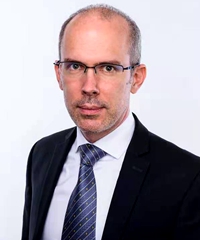 Dr. David Raisz(IEEE Senior Member)
Dr. David Raisz(IEEE Senior Member)
Faculty of Electrical Engineering and Informatics, Budapest University of Technology and Economics, Hungary
Biography: David Raisz (Senior Member, IEEE) received the M.Sc. degree and the Ph.D. degree in electrical engineering from the Budapest University of Technology and Economics (BUTE), Budapest, Hungary, in 2000 and 2011, respectively. From 1999 to 2001, he was a Guest Researcher with the Graz University of Technology, Graz, Austria. From 2012 to 2016, he led the Power Systems and Environment Group with the Department of Electric Power Engineering, BUTE, as an Associate Professor. Between 2017 and 2020, he joined the Institute for Automation of Complex Power Systems, E.ON Energy Research Center, RWTH Aachen University, Aachen, Germany. He has been working on or leading more than 40 industrial and research projects.
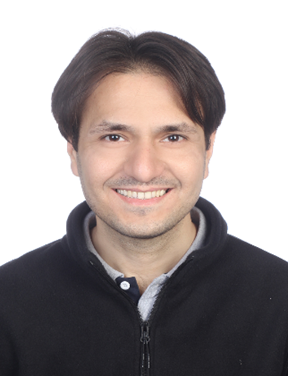
Dr. Syed Abdul Rehman Khan
Brasi School of Supply Chain Management, USA